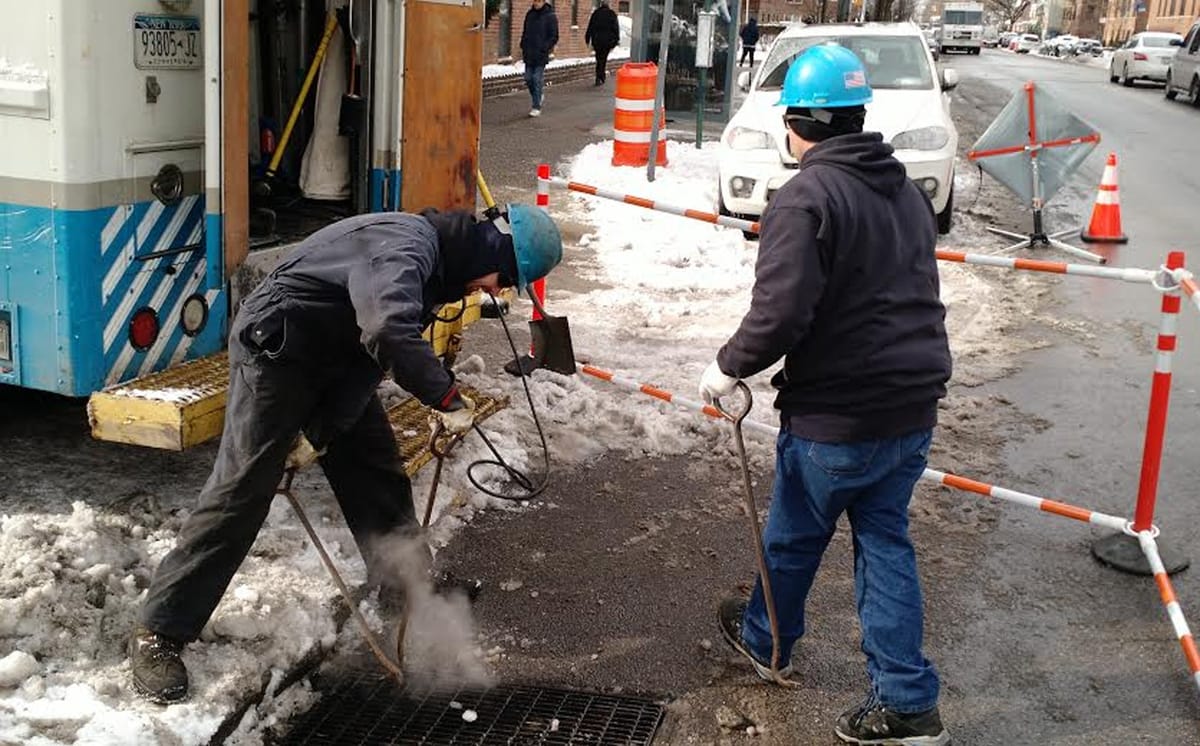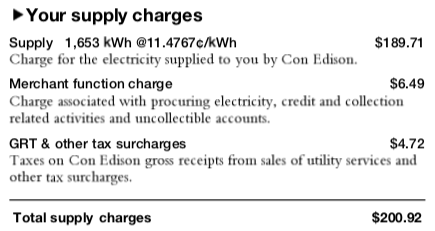High Electric Bills Catch Residents Unaware: It’s Not Just The Rate Hike

Cash-strapped New Yorkers struggling to make ends meet during the pandemic are now dealing with another extra expense: higher electricity bills.
Several Consolidated Edison customers who shared their electric bills with Bklyner have discovered that a portion of their bill known as the “supply charge” has crept up in recent months, to nearly double what it was at this time last year.
The increase comes on top of 13.5% rate hikes for Con Ed customers approved last month by the State Public Service Commission (PSC), which will phase in over the next two years.
Here’s what’s happening.
Generally, New Yorkers’ electric bill is split up into three categories:
- The supply charge, which is the cost of the electricity being sent to you by Con Ed or another service provider.
- The delivery charge, which is what Con Ed charges to maintain the system through which it delivers electricity. An increase in the delivery charge is what the State PSC approved last month.
- Taxes and fees, which are set by the state.
It’s an increase in the supply charge that’s catching people off-guard. The supply charge isn’t set by any specific authority. Instead, Con Edison buys electricity wholesale from various power plants as part of a complex market system overseen by an entity called the New York Independent System Operator.
The supply charge can go up and down based on a few factors, including the cost of natural gas that fuels many of the region’s power plants (and which has risen lately), and because of capacity prices, which plants charge to cover the costs of maintaining reliable sources of electricity so they can provide power at times of peak demand. This exceptionally cold, snowy winter has driven up those costs, too.

“The increase in electric bills is largely due to the higher cost of the commodity,” Con Ed spokesperson Allan Drury explained to Bklyner. “Wholesale electric capacity prices and the cost of the natural gas used to generate electricity are higher.”
Drury said the increases are being felt across Con Ed’s entire service area, which includes New York City and Westchester.
“Energy prices are volatile,” he said. “They fluctuate nearly constantly.”
Brooklyn resident Alexis Hightower, saw her supply charge go up from about 6.5 cents per kilowatt hour in February 2020 to about 10.5 cents this month, a 66% increase.
As a result, her overall electricity bill last month was about $225, 42% higher than the same period last year, even though she’d only used about 22% more energy.
“I was shocked when I opened my Feb 21 Con Ed bill,” Hightower said.
Other New Yorkers saw similar increases. Brooklyn resident Yoseph Horowitz saw his supply charge creep up from around 6.48 cents per kilowatt hour in February 2020 to 11.47 cents this year, a nearly 77% increase.
“It’s pretty jarring when you add the bill up with your rent at the end of the month,” Horowitz said.
Though Con Ed can’t really control wholesale electricity costs, Drury said the company has taken steps to try to limit price volatility. Con Ed provides the electricity to customers at cost, meaning it does not make a profit on the commodity itself.
As for how New Yorkers can keep their bills down, he pointed to Con Ed’s tips for using energy wisely and taking advantage of Con Ed’s energy efficiency programs.
Some New Yorkers unhappy with Con Ed’s prices and service have also tried their hand with Energy Service Companies (ESCOs), private entities that compete on the market for your business and sometimes offer perks like commitment to renewable energy sources.
But buyer beware: a report by Public Advocate Jumaane Williams found that some ESCOs often charged higher, unpredictable rates and have engaged in unsavory business practices. The report also criticized Con Ed for its high profit margins, perverse economic incentives and inconsistent service.
Williams is calling for the creation of a public power system that brings utilities under public ownership and expands public control of the wider power grid. That call has become increasingly popular in recent months amidst a cascading series of scandals involving local utility providers.





